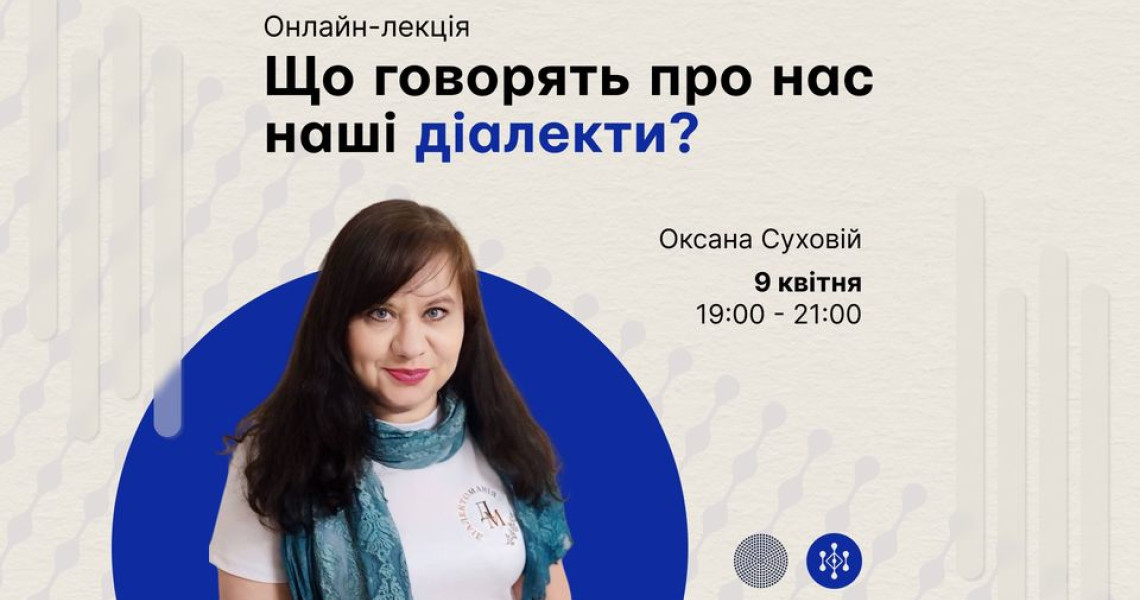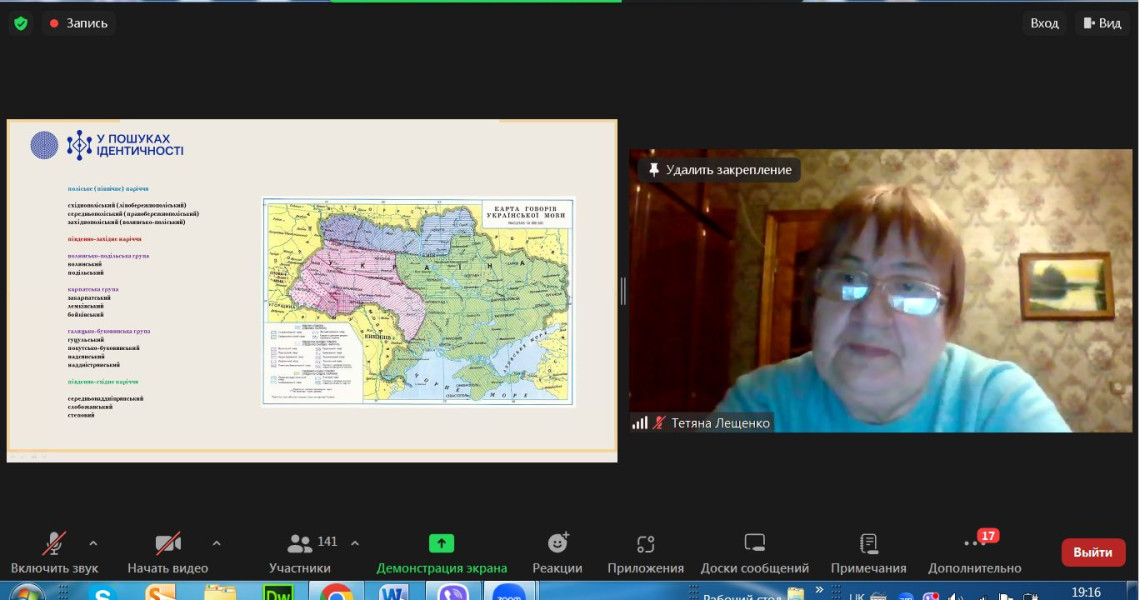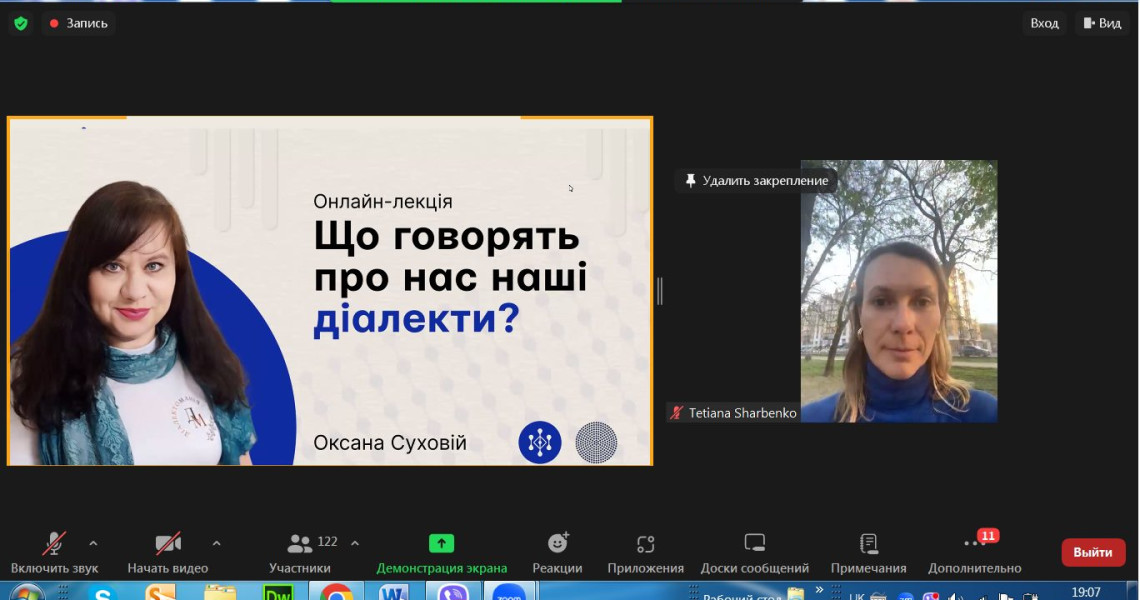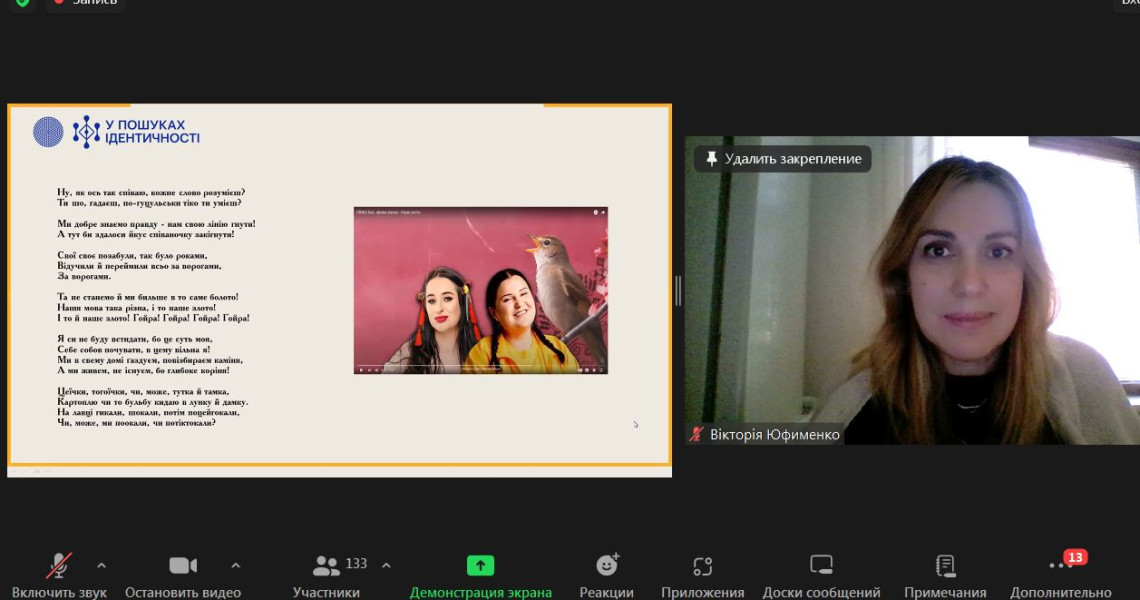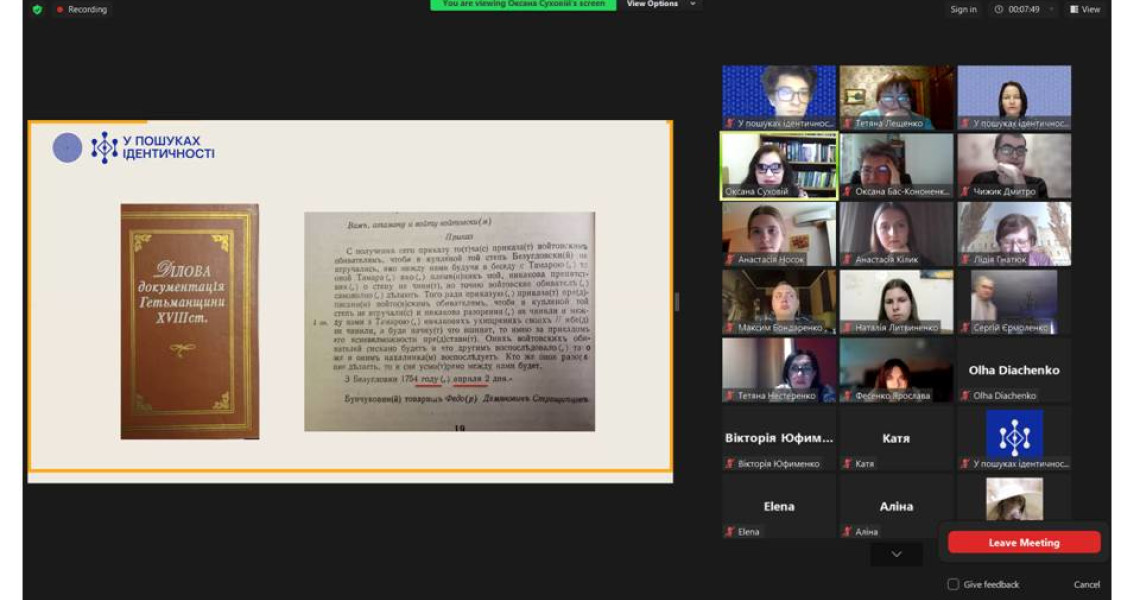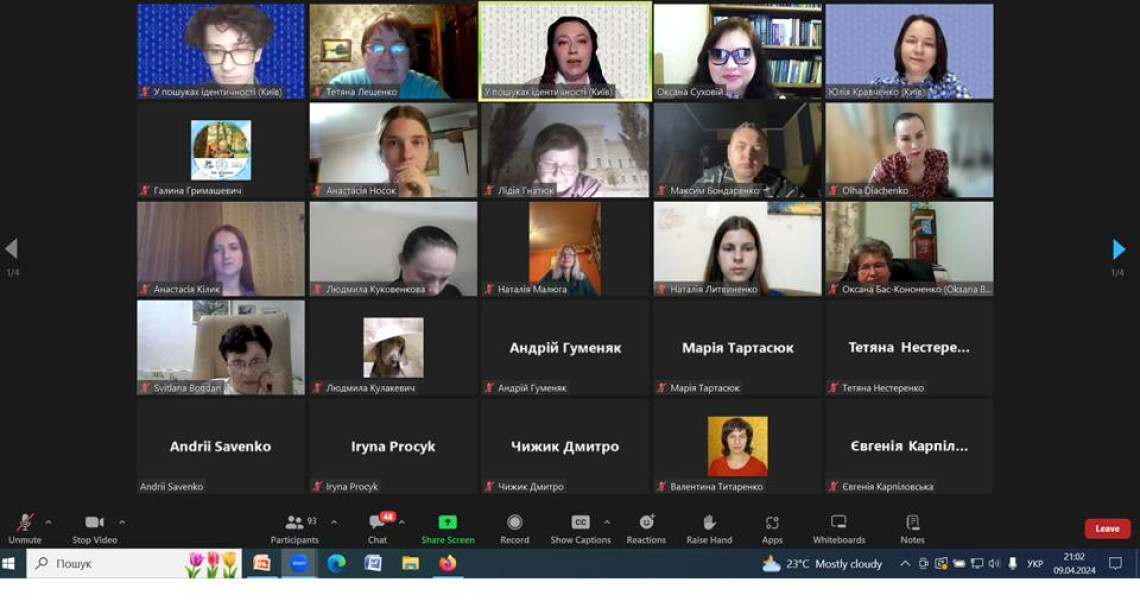9 квітня науково-педагогічні працівниці кафедри українознавства та гуманітарної підготовки Полтавського державного медичного університету завідувачка кафедри Тетяна Лещенко, доцентки Тетяна Шарбенко та Олена Шевченко і ст. викладачка Вікторія Юфименко відвідали актуальну онлайн-лекцію «Що говорять про нас наші діалекти?» Лекторка — Оксана Суховій, мовознавиця, кандидатка філологічних наук, доцентка кафедри української мови та прикладної лінгвістики Навчально-наукового інституту філології Київського національного університету імені Тараса Шевченка. На лекції були присутні понад 150 слухачів.
Заслухали й обговорили важливі питання, які стосуються мови:
• Як упізнати земляка за його мовленням?
• Які дієслова «видадуть» ваше походження?
• Чому лексика діалектів значно багатша за лексику літературної мови?
• Як уся історія української мови «консервується» в діалектах?
• Чому говори південних і східних областей наймолодші?
• Які найтиповіші риси кожного з наріч?
• Як під час війни діалект допомагає шифрувати повідомлення, аби їх не зрозумів ворог?
Лекторка і слухачі, які взяли участь у обговоренні, переконані, що мова належить до чинників, які творять нас як особистість, формують своєрідну «візитівку» кожної людини. Із раннього дитинства ми чуємо і всотуємо в себе мову від батьків, від найближчого оточення. Зазвичай це не літературна мова, а діалектна, територіальна. У цьому сенсі вона є не лише засобом спілкування, а й певним ідентифікатором особистості, родини, роду, зрештою — малого чи великого етносу. Філологічне «вухо» здатне визначити регіон, із якого походить людина, за інтонаціями, наголосом, окремими звуками, закінченнями слів і навіть сполучниками.
Усім нам важливо усвідомлювати, що в контексті війни на винищення, яку веде російська федерація проти України, збереження мови набуло статусу екзистенційності.
Ukrainian language: up-to-date talk
On April 9, the academic staff of the Department of Ukrainian Studies and Humanities at Poltava State Medical University, Head of the Department Tetiana Leshchenko, Associate Professors Tetiana Sharbenko and Olena Shevchenko, and Senior Lecturer Viktoriia Yufymenko attended the online lecture "What do our dialects say about us?" The lecturer was Oksana Sukhovii, linguist, PhD in Philology, Associate Professor of the Department of Ukrainian Language and Applied Linguistics at the Educational and Research Institute of Philology of Taras Shevchenko National University of Kyiv. The lecture was attended by over 150 students.
They heard and discussed important issues related to language:
- How to recognize a fellow countryman by his speech?
- What verbs will "give away" your origin?
- Why is the vocabulary of dialects much richer than the vocabulary of the literary language?
- How is the entire history of the Ukrainian language "preserved" in dialects?
- Why are the dialects of the southern and eastern regions the youngest?
- What are the most typical features of each dialect?
- How does a dialect help to encrypt messages during a war so that they are not understood by the enemy?
The lecturer and the students who took part in the discussion are convinced that language is one of the factors that create us as a person, forming a kind of "business card" of each person. From early childhood, we hear and absorb language from our parents and our immediate environment.
Usually, it is not a literary language, but a dialect, a territorial language. In this sense, it is not only a means of communication, but also a certain identifier of an individual, family, clan, and ultimately a small or large ethnic group. The philological "ear" can identify the region from which a person comes by intonation, accent, individual sounds, word endings, and even conjunctions.
It is important for all of us to realize that in the context of the war of extermination waged by the russian federation against Ukraine, the preservation of the language has acquired the status of existential importance.






